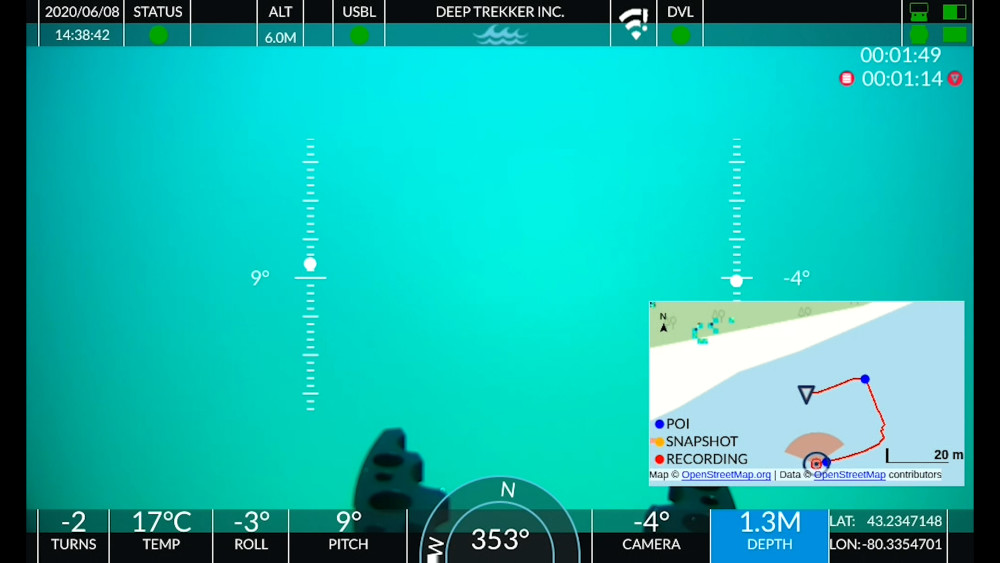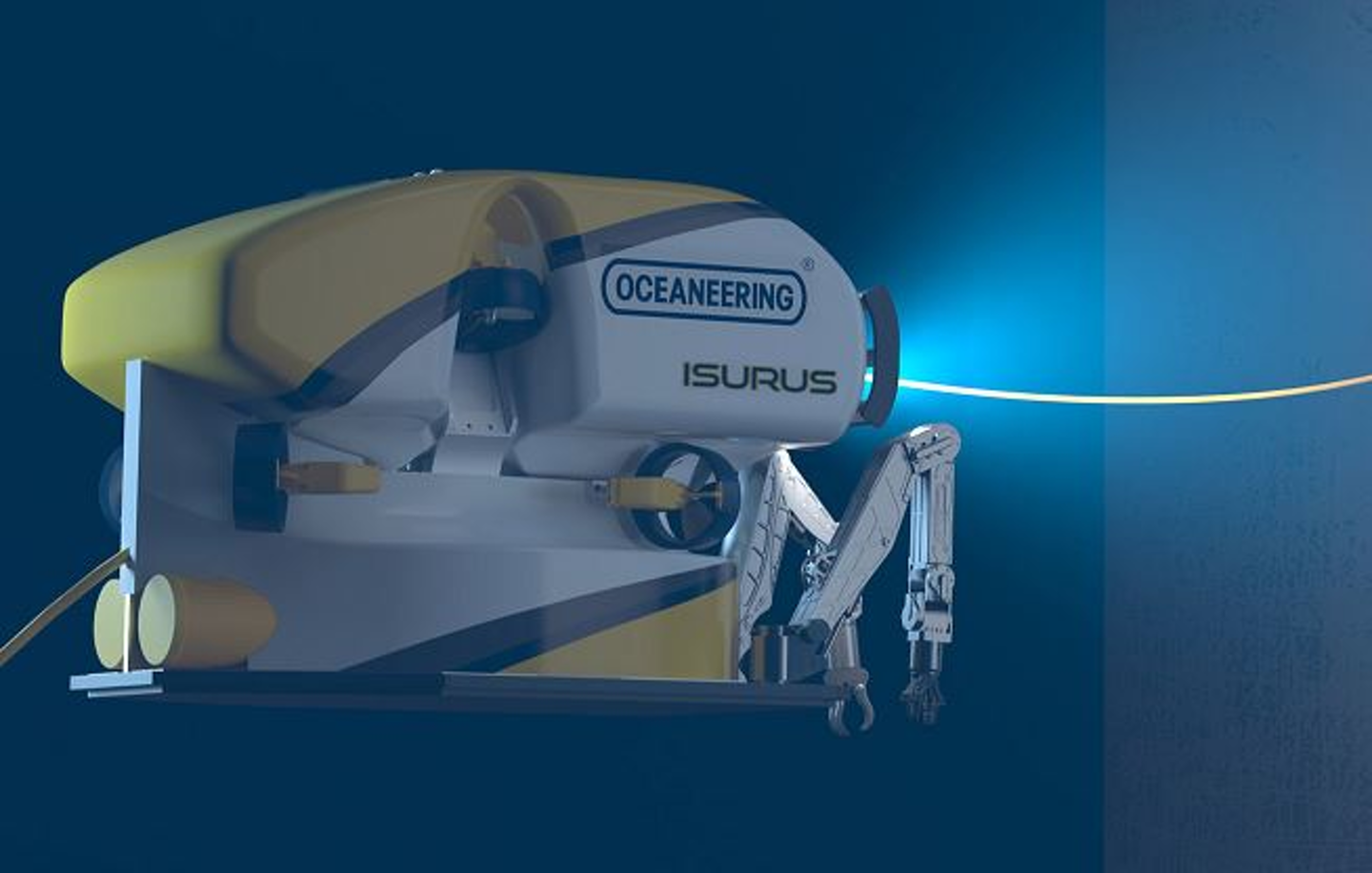Home › Forums › ROV › ROV Rookie Corner › Does home address make a difference to employability?
- This topic has 5 replies, 3 voices, and was last updated 16 years, 2 months ago by
JoeBolt.
-
AuthorPosts
-
April 29, 2008 at 1:07 pm #1483
JoeBolt
ParticipantHello chaps, this is my first posting. I’ve been perusing these forums for a few days now and gained much useful information, but I have a few questions that remained unanswered.
1. Does it matter much to an employer where you live when you apply for a job as a Trainee ROV Pilot / Technician? I live in Portsmouth UK and most of the ROV companies are based in Aberdeen. Would this exclude me as an applicant unless I was prepared to move up north? If not would the company accommodate me during any training courses or would I need to pay for my own travel and lodgings?
2. What about travel to work sites once you are gaining experience as a trainee or working as a qualified Pilot / Technician? Would a company fund your travel from anywhere or is there a limit to what they will pay?
3. Living overseas. My wife is foreign so emmigration is always an option open to me. Could I continue to work for an Aberdeen based company while living several thousand miles away?
Any information would be much appreciated.
April 29, 2008 at 2:34 pm #17374Ray Shields
ParticipantJoe,
you can usually live anywhere in the UK, as long as you have reasonable access to 1 or preferably more airports. When you are attending training courses or base work, you normally stay in hotel/BnB or more commonly now a Company House along with several others. Especially in Aberdeen, hotels/BnBs are just plain full all the time as the place is so busy. The company pays your travel/accommodation.
Most companies have some kind of limit as to where you can live whilst being an employee. I would recommend when first starting out you really want to make yourself as available as possible (i.e. live in the UK for UK base companies).
Once established you normally have to at least live in Europe. Most will not employ salaried employees who live or want to live further out than that. There are many people who live in the Far East and work over here but they are usually experienced people that are either worth paying the fare to come over or come up with a deal to work maybe a long trip (8-10 weeks) in order to offset the price of flying them over/back. They are mainly employed via an Agency as opposed to being salaried with a company.
Different companies have different rules but in general the above applies at least for Uk companies.
I would say that theres certainly no problem with you living in Portsmouth and getting a job with any UK base ROV company. If you wished to move abroad after being employed, you would have to comply with their living policy (as I said, normally within Western Europe) or quit the company.
Travel to/from your home to work is all paid for, almost always discount
economy tickets.Hope this helps.
April 29, 2008 at 5:35 pm #17375JoeBolt
ParticipantThanks for your comprehensive reply Ray.
I have a few more queries that you might be kind enough to answer.
1. Do think it is better to apply to companies by e-mail via their websites, or to send a CV and covering letter in the post?
2. What would you say is the average length of time it takes for a person to complete his training period? In other words how long before you are considered a qualified Pilot / Technician, drawing the appropriate pay rates?
3. I have 20 years experience in Aircraft Engineering and some aeroplane piloting experience, but for the last couple of years I’ve worked as a Merchant Seaman. Because of the latter, I obviously have a Discharge book, ENG1 Medical and also several STCW’95 certificates. (Firefighting, first aid, personal survival, lifeboat handling, etc). How relevant are these Merchant Navy qualifications to the ROV industry? Shall I make a big thing of them in my applications, or concentrate on the technical side of my aircraft work?
Thanks in advance for for your help.
April 29, 2008 at 6:44 pm #17376Pascobalbodeano
ParticipantRe: Merchant tickets,
I am starting out in this business as well joe and have come from a comprehensive marine back ground. Some people in the industry believe that the marine tickets count for more than others. All in i guess it just depends on who you are working with and what their knowledge of the marine industry is. You takes your chances I’ m afraid. IMCA only really seem to stipulate guidelines for people with little or no offshore experience, but then they also say that they are only guidelines!
Pascobal
April 29, 2008 at 8:53 pm #17377Ray Shields
ParticipantJoe,
the marine background experience will help but the qualifications wont excuse you from having to do other medical and survival training (e.g. you still need the OPITO approved offshore survival, you still need a different medical etc.).
Most companies pay for their staff to get Seamans Cards (the red ones) as this means they can buy them cheap Marine tickets for travel. A lot of guys also get a Discharge book (blue book) to keep a track of their days to try and claim their offshore tax back (getting more difficult to do now) but people have to pay for this themselves as it is not needed to do the job.
Anyone can email (and regularly do!). Do a covering letter and send in a copy of your CV, try and get the exact name of the person (usually in the HR department) to send it to if you can.
read through the FAQs (link over on the left) and check through your CV. The offshore CV is a bit different from normal onshore ones. Read the advice and extract the relevant bits of your experience, most of it will assist
Despite IMCA having guidelines and most companies being members of IMCA, each company seems to make uop their own rules and levels. For example a lot of companies have several grade of Pilot (not the 2 that IMCA states). You will normally start as trainee for teh first 6 months, then go on to e.g. PT4, PT3, PT2 etc.
I would suggest it would take at LEAST two years to get to a level where you would be considered close to "competent" – but as I said this may not necessarily mean you would be called a PT1 due to different companies grading structure. Each increas in grade would mean an extra £10 a day plus £1-2k a year extra.
I realise its daunting for a lot of people to change industries and it may mean a drop in pay to start with. I would suggest that in your first year you would expect to make approx. £30k – note this is a ROUGH idea, depends on who you work for, how many days you, etc. but it gives you an idea if you can make enough in your first year.
Aircraft piloting would help a little but realistically playing computer games tends to give you more experience in flying an ROV. The 20 years of engineering experience is what will count more.
My usual quote to Newbies is one from my old Ops Manager "I want to employ Engineers and teach them about ROVs, not employ people and teach them to be Engineers"
April 29, 2008 at 9:16 pm #17378JoeBolt
ParticipantOK, thanks guys. I think I have enough information now to send out a few applications.
-
AuthorPosts
- You must be logged in to reply to this topic.



